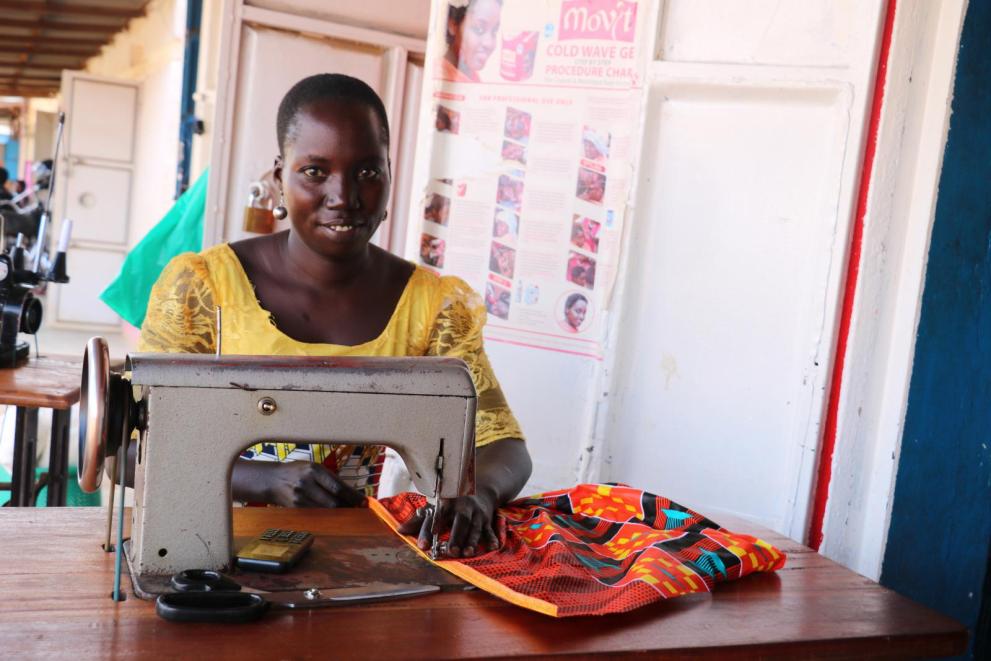
On the verandah of a small one-roomed shop along the busy main road in Arua town, Northern Uganda, five young women and a man are bent over their sewing machines. Focusing intently, they are stitching together shorts as part of a test that will see them graduate from a three-month tailoring course. Some of these youths are refugees from South Sudan, while others are Ugandans, all brought together by a common interest – to learn new skills.
Flora Nakoma, 29, left her home in South Sudan with her three children. Separated from her husband as they fled from armed men in their village, Nakoma does not know where he is or whether he is alive. She is alone in a strange land with three children to take care of. She receives food and some other essentials from the World Food Programme (WFP), but Nakoma knows that she needs a source of income to provide for her children.
Twenty-four-year-old Ugandan Christine Lekuru dropped out of school four years ago. Had she continued, she would now be in her final year at university. She was forced to drop out because her parents were unable to pay school fees. Without a higher education, Christine has not been able to find work. Instead she farms at home, growing sim sim, cassava, maize and peas. She makes a small income from selling the food that is left after she has fed her family.
Ugandan Flavia Drileba, 25, dropped out of school years ago. She got married and lives with her husband and two children. The family makes an income from farming, but the proceeds are just enough to survive. They would like to save money to buy property.
The three young women meet every day at the shop for a tailoring apprenticeship. This is under the Support Programme for Refugee Settlements and Host Communities in Northern Uganda (SPRS-NU), which is funded from the European Union Emergency Trust Fund (EUTF). This particular component of the programme – Skills Development and Entrepreneurship Training – is implemented by Enabel, the Belgian development agency.
The programme not only imparts skills to youth but also promotes harmonious living and cooperation between refugees and Ugandan nationals. “As they work together and interact, they are able to learn about each other, seeing the similarities between them. They realise that they have similar dreams, as well as fears,” says Fatuma Faidha, their trainer.
Anxious to participate in the programme but with no relatives to help her take care of her children, Nakoma entrusted them to a neighbor. She now stays in the town and will only see the children when the course is over in three months. “I had to get on this course. It was the only way to improve our lives,” she says. Nakoma hopes to start her own tailoring business when she returns to the refugee settlement.
“That way I will be able to take care of my children and ensure a bright future for them,” she explains optimistically.
Just like Nakoma, Lekuru and Drileba also see the development of a concrete skill as the gateway to self-reliance and a better standard of living. Both hope to get a job or start their own business and earn an income to provide for themselves and their families.
Details
- Publication date
- 15 January 2020
- Region and Country
- Uganda
- Thematic
- Greater economic and employment opportunities
- Partner
- Danish Refugee Council
- Save the Children
- Austrian Development Agency
- ENABEL - Belgian Development Agency
